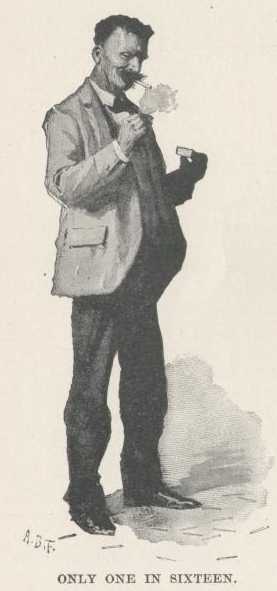April 20.—The cyclone of 1892 killed and crippled hundreds of people; it was accompanied by a deluge of rain, which drowned Port Louis and produced a water famine. Quite true; for it burst the reservoir and the water-pipes; and for a time after the flood had disappeared there was much distress from want of water.
The cyclone of 1892 tore down two great blocks of stone buildings in the center of Port Louis—the chief architectural feature—and left the uncomely and apparently frail blocks standing. Everywhere in its track it annihilated houses, tore off roofs, destroyed trees and crops. The men were in the towns, the women and children at home in the country getting crippled, killed, frightened to insanity; and the rain deluging them, the wind howling, the thunder crashing, the lightning glaring. This for an hour or so. Then a lull and sunshine; many ventured out of safe shelter; then suddenly here it came again from the opposite point and renewed and completed the devastation. It is said the Chinese fed the sufferers for days on free rice.
Whole streets in Port Louis were laid flat—wrecked. During a minute and a half the wind blew 123 miles an hour; no official record made after that, when it may have reached 150. It cut down an obelisk. It carried an American ship into the woods after breaking the chains of two anchors. They now use four-two forward, two astern. Common report says it killed 1,200 in Port Louis alone, in half an hour. Then came the lull of the central calm—people did not know the barometer was still going down—then suddenly all perdition broke loose again while people were rushing around seeking friends and rescuing the wounded. The noise was comparable to nothing; there is nothing resembling it but thunder and cannon, and these are feeble in comparison.
 This is the only place in the world where no breed of matches can stand the damp. Only one match in 16 will light.
This is the only place in the world where no breed of matches can stand the damp. Only one match in 16 will light.
The roads are hard and smooth; some of the compounds are spacious, some of the bungalows commodious, and the roadways are walled by tall bamboo hedges, trim and green and beautiful; and there are azalea hedges, too, both the white and the red; I never saw that before.
As to healthiness: I translate from to-day's (April 20) Merchants' and Planters' Gazette, from the article of a regular contributor, "Carminge," concerning the death of the nephew of a prominent citizen:
"Sad and lugubrious existence, this which we lead in Mauritius; I believe there is no other country in the world where one dies more easily than among us. The least indisposition becomes a mortal malady; a simple headache develops into meningitis; a cold into pneumonia, and presently, when we are least expecting it, death is a guest in our home."
This daily paper has a meteorological report which tells you what the weather was day before yesterday.
One is never pestered by a beggar or a peddler in this town, so far as I can see. This is pleasantly different from India.